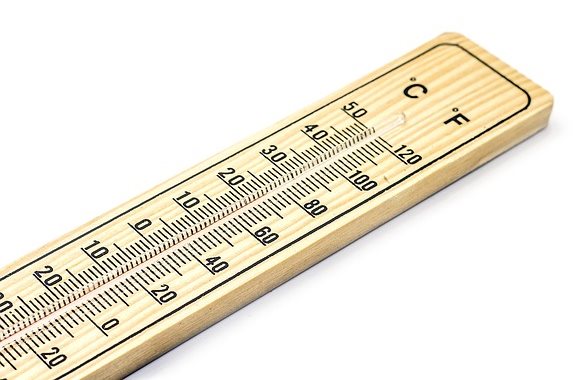|
Update 2017-02-25: Updated vocabulary dictionary links. Many of my students in China are mentioning how cold it is there right now, but are having issues with the vocabulary for describing the temperature (how hot or cold it is).
In this article, I will try to clear up how to speak about the temperature of the weather. I will write temperatures and numbers as words to show how they are spoken, e.g. "minus fifteen degrees Celsius". And I'll write the digits and symbols in brackets, e.g. "(-15°C)" to make clear exactly what the temperature is and to show how they are usually written. Firstly, °. That symbol is pronounced "degrees" (UNIT). English speakers talk about temperature both with AND without this word.
Secondly, there are two measuring systems for temperature: Celsius / Centigrade (abbreviated as C) and Fahrenheit (abbreviated as F) . In most English-speaking countries, we now use Celsius. But in the United States ( and in the recent past in Britain and others) they still use Fahrenheit. So if you're speaking with an American, make clear which measuring system you're using.
Thirdly, when it gets really cold, we can use words like "minus" and "below" in combination with numbers referring to the temperature. "Minus" (#2) before a number refers to temperatures below 0°.
Finally, "brrr..." is a sound English speakers make to express that they feel very cold.
0 Comments
|
G.A.L.E.S.L. / joe3
Some tips and links on learning English. Categories
All
Archives
June 2017
|


 RSS Feed
RSS Feed

